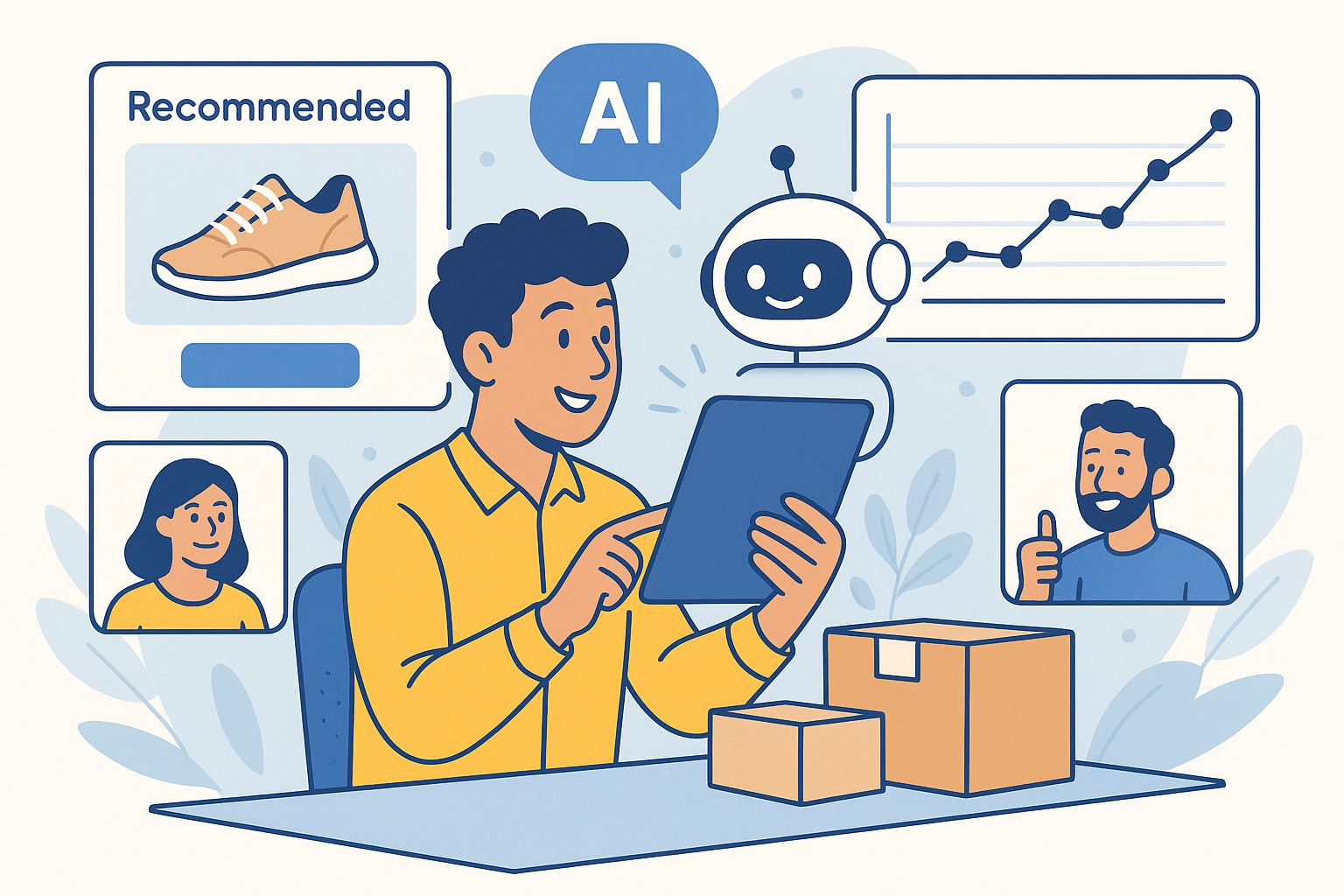Transformation of Customer Loyalty Through AI-Driven Personalized Engagement for SMBs

Transformation of Customer Loyalty Through AI-Driven Personalized Engagement for SMBs
AI technology is revolutionizing how small and medium-sized businesses (SMBs) approach customer loyalty, leveraging data, automation, and personalization to create more meaningful, efficient interactions. Below, we explore the latest trends, case studies, and actionable insights for SMBs to harness AI for stronger customer relationships and improved business outcomes.
Latest Trends and Innovations in AI for SMBs
As AI technology evolves, its accessibility for small and medium businesses is increasing. There’s a growing number of no-code and low-code platforms that empower SMBs to implement sophisticated AI tools without extensive technical knowledge. This democratization of AI means that businesses can now harness powerful personalization strategies on a budget.
A staggering 72% of SMBs utilizing AI-powered customer support report faster resolution times, which significantly enhances customer satisfaction and fosters loyalty. Likewise, AI is redefining marketing for nearly half of small business marketers who count on AI for ad targeting to ensure their messages reach the right customers at the right time. This targeted approach is yielding higher conversion rates.
AI chatbots and virtual assistants are now critical for SMBs, providing around-the-clock engagement across digital platforms. This omnichannel approach leads to seamless customer journeys and more responsive interactions, aligning perfectly with customer expectations in today’s fast-paced digital landscape.
Impactful Case Studies: AI Chatbots & Personalization in Action
Retail & E-Commerce
In the retail sector, small e-commerce businesses have seen remarkable results from implementing AI chatbots. These digital assistants can respond to customer inquiries instantly, process orders, and make personalized product recommendations. The payoff is twofold: not only do customers enjoy enhanced satisfaction, but businesses also witness an uptick in average order value and repeat purchases.
Additionally, businesses leveraging AI for personalized product suggestions have reported dramatic increases in conversion rates, highlighting how customers respond positively when they feel understood and valued.
Service Businesses
In service sectors, platforms like WhatsApp have become indispensable. In regions such as India and Brazil, over 80% of small businesses harness WhatsApp’s AI capabilities for automating responses and managing customer queries. This not only improves service levels but also contributes to business growth. Local restaurants, for instance, use AI to recommend dishes based on customers’ previous orders, thus enhancing both customer loyalty and revenue.
The Role of Data Analytics in Personalized Engagement
At the heart of AI-powered personalization is robust data analytics. SMBs can now gather and analyze a wealth of customer data—including transaction histories, browsing patterns, and feedback—to segment audiences effectively and tailor communications. This level of insight allows for precision marketing, enhancing the relevance of customer interactions.
Moreover, predictive analytics allows businesses to forecast customer behaviors, enabling timely outreach with personalized promotions that prevent churn and maintain engagement. As customer interactions accumulate over time, AI algorithms continuously refine their accuracy, leading to even more nuanced personalization strategies that deepen customer loyalty.
How SMBs Can Leverage AI Effectively
For SMBs looking to adopt AI, the best approach is to start small and scale gradually. Engaging with core use cases, such as using AI chatbots for customer support or deploying basic email personalization, allows businesses to build confidence and see ROI before exploring more complex integrations.
No-code and low-code platforms make entry into the AI space more feasible for SMBs, reducing the need for heavy IT investments. In tandem, businesses must prioritize data privacy to cultivate customer trust—an essential foundation for fostering loyalty in a data-driven environment.
Lastly, tracking key metrics like customer satisfaction, retention rates, and average response times will ensure that businesses can optimize their AI initiatives successfully.
Key Statistics Highlight the Transformative Impact
The numbers speak volumes about the potential of AI:
- 72% of SMBs using AI-driven customer support achieve faster resolution times, significantly enhancing satisfaction.
- 47% of marketers in small businesses turn to AI for ad targeting, which boosts conversion rates.
- Over 69% of e-commerce SMBs report improved operational efficiency thanks to AI tools.
- Nearly three in five small businesses plan to adopt or are already using AI technology in the next two years.
The Future: Viral Trends and Competitive Edge
As we look ahead, generative AI is rapidly being adopted by SMBs to create marketing content and personalized outreach at scale, increasing engagement and establishing stronger brand loyalty. Hyper-personalization is set to transform customer experiences through micro-segmentation, delivering uniquely tailored interactions to each individual.
For early adopters of AI technology, the competitive edge is clear. Businesses not only retain existing customers but also attract new ones by offering the personalized and seamless service that was once the prerogative of larger enterprises.
"Consumers now demand personalized, efficient experiences, which AI enables through data-driven insights and automation."
Conclusion
The landscape of customer engagement is undeniably shifting, driven by the power of AI. As businesses of all sizes adopt these technologies to improve communication and service, the future is bright for those who harness the potential of AI-driven personalization. Embracing these changes can profoundly impact customer loyalty and service quality. By leveraging solutions like Untap, SMBs can enhance their customer experiences, thereby driving conversions and solidifying their place in the market.